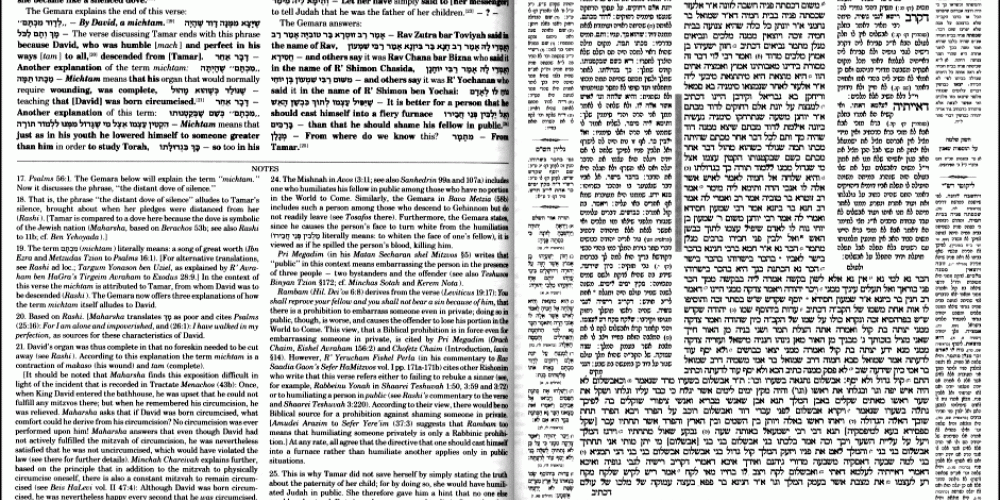
The Torah expects us to take our word seriously, period: “That which comes out from one’s mouth, you shall keep and do” (Devarim 23:24). The taking of a vow generally implies weakness, as we must rely on the force of the vow to ensure we keep our word. While such can be used positively, as in a vow to give charity, it is better not to need to resort to vows to do that which is right.
The ambivalence to the taking of nedarim, vows, seems to be underlying the Mishnayot of the Masechet. At the heart of the Masechet is somebody prohibiting himself from receiving benefit from others, or others receiving benefit from him. Such talk reflects anger and distances one from others--the polar opposite of Ketubot, which focuses on the bond between husband and wife[1]. The opening Mishnah teaches: “One who says to his ‘friend’: ‘I am forbidden to you, I am separated from you, I am distant from you” (Nedarim 2a) is forbidden to derive benefit from his friend". In a fit of rage, people forswear all kinds of contact with all kinds of people. The Mishnayot of Nedarim discuss such cases as who exactly is included when one bans contact with “the children of Noach”, “those who rest on Shabbat”, “those who go down to the sea”, “those who see the sun”. We have partners forbidding benefit one to the other (making for a rough partnership).
What exactly is included in a declaration of forbidding benefit is the subject of discussion--one complicated by the ruling “that mitzvoth are not given for benefit” (Nedarim 16b). Thus, one who is forbidden to derive benefit from another may still hear the shofar blown by him. One may even learn the Oral Law from those from whom one may not receive benefit--though it's hard to imagine how much one can actually learn in such a situation.
When not dealing with those forbidding others to confer or derive benefit from oneself, the Mishnah deals with defining items that one may have forbidden to himself. Does cooked food include food that is fried or barbequed? Must one who takes a vow not to eat meat also refrain from gravy? Is olive oil to be included in a ban on olives? Does a ban on grapes include wine? And on and on it goes.
The Mishnah then moves to the ‘meaning’ of time. Does a vow for a year extend into the 13th month during a leap year? When exactly does a vow not to do something for the summer end? It would be so much easier if one would think before one speaks. But alas, such is all too rare, and many pages of Talmudic discussion analyze the impact of speech that would have been better left unsaid.
The last three chapters of the Mishnah detail how one can reverse a neder, effectively rendering it null and void. Our Sages note that “heter nedarim porchim be'aveer, the annulment of vows is floating in the air, and they have nothing to rely on” (Mishna Chagiga 1:8). Yet rely on this we must in order to prevent social discord. In order to annul vows, we must verify if the person had fully understood the ramifications of their vow. If and when we discover some point they had not thought of, we can render the entire vow annulled based on that one point.
The ninth chapter discusses and debates exactly what qualifies as a point of annulment. Interestingly, the Mishnah opens with a debate on whether one can annul a vow based on the realization that such a vow will cause shame to a parent. All too often, we do not think of others when we speak. The last two chapters discuss the right of a father to annul the vows of his daughter up until the age of puberty and the circumstances under which a husband may annul the vows of his wife.
[1] It is true that Masechet Ketubot also features many negative vows a spouse may make towards the other, but the concept of Ketubot reflects love and concern, whereas Nedarim generally reflects much more negative attitudes.



